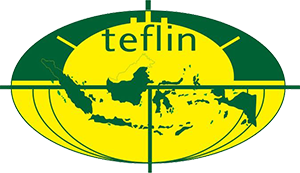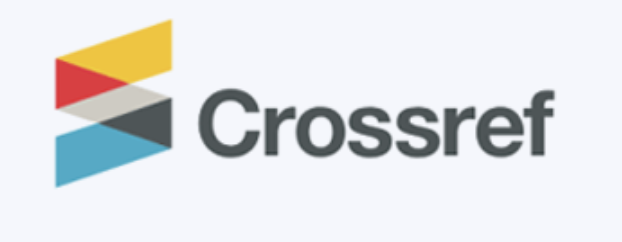Challenges and Strategies in English Preparatory Program (EPP) Language Planning: An EPP Director’s Perspective
DOI:
https://doi.org/10.52217/ijlhe.v8i2.1786Keywords:
3C’s, Cambodia, case study, language education, language programAbstract
This study aims to explore the challenges experienced by an EPP director and the strategies that she applied in language planning during the EPP director’s first year of appointment in an international higher education institution in The Kingdom of Cambodia. In this qualitative research, case study was employed. Data were gathered via semi-structured interview conducted using Google Meet. The findings reveal that the EPP director encountered the three C’s of language planning challenges; namely, 1) cultural conflicts, 2) classroom challenges, 3) and coordination concerns. Amidst the challenges experienced by the EPP director during her first year of appointment, the she utilized the following strategies known as the three C’s of language strategies: 1) curriculum customization, 2) classroom engagement, and 3) communication. Despite ongoing challenges, the director's strategic adjustments have driven program growth such as the improvement of learning materials, student engagement, and decision-making procedures by meeting evolving student needs through curriculum customization, engagement enhancement, and collaboration. The program's flexibility and stakeholder focus have built resilience, enabling it to thrive despite limitations.
References
Alshehri, A., Abdulhaleem, E., & Khan, A. (2024). Correlating English language proficiency levels and perceptions of educational experience among Saudi EFL learners in preparatory year programs using Dundee Ready Education Environment Measure (DREEM). Cogent Education, 11(1), 1–15. https://doi.org/10.1080/2331186X.2024.2439163
Atar, C., Kır, E., & Akkaş, F. D. (2020). An evaluation of the English preparatory program at İstanbul Medeniyet University. Language Teaching and Educational Research, 3(1), 94–115. https://doi.org/10.35207/later.714457
Barzani, S. H. H., Aslam, M. Z., & Aslam, T. (2021). The role of technology in ELL classes in Turkish Republic of Northern Cyprus. International Journal of Language Education, 5(2), 30–39. https://doi.org/10.26858/ijole.v5i2.14109
Bayram, I., & Canaran, Ö. (2019). Evaluation of an English preparatory program at a Turkish foundation university. Journal of Language and Linguistic Studies, 15(1), 48–69. http://dx.doi.org/10.17263/jlls.547606
Cheng, L. (2012). The power of English and the power of Asia: English as lingua franca and in bilingual and multilingual education. Journal of Multilingual and Multicultural Development, 33, 327–330. https://doi.org/10.1080/01434632.2012.661432
Duruk, E. (2021). A CEFR based evaluation of B1+ level preparatory program at a Turkish state university: The application of the foreign language skills scale. Psycho-Educational Research Reviews, 10(3), 426–438. https://doi.org/10.52963/PERR_Biruni_V10.N3.27
EF Education First. (2024). EF English proficiency index. https://www.ef.com/wwen/epi/
Erdoğan, G., & Mede, E. (2021). Evaluating an English Preparatory Program using CIPP Model and exploring the motivational beliefs for learning. Journal of Education and Educational Development, 8(1), 53–76. https://doi.org/10.22555/joeed.v8i1.109
Etikan, I., Musa, S. A., & Alkassim, R. S. (2016). Comparison of convenience sampling and purposive sampling. American Journal of Theoretical and Applied Statistics, 5(1), 1–4. https://doi.org/10.11648/j.ajtas.20160501.11
Finlay, L. (2021). Thematic analysis: The ‘good’, the ‘bad’ and the ‘ugly’. European Journal for Qualitative Research in Psychotherapy, 11, 103–116.
Geçkinli, F. (2024). Context analysis of an English Preparatory School Program in higher education: A case study. Akademik Platform Eğitim ve Değişim Dergisi, 7(1), 1–24. https://doi.org/10.55150/apjec.1360220
Golzar, J., Noor, S., & Tajik, O. (2022). Convenience sampling. International Journal of Education & Language Studies, 1(2), 72–77.
Hashim, A., Chee Leong, Y. E. E., & Tra Pich, P. (2014). English in higher education in Cambodia. World Englishes, 33(4), 498–511. https://doi.org/10.1111/weng.12110
Karci Aktaş, C., & Gündoğdu, K. (2020). An extensive evaluation study of the English preparatory curriculum of a foreign language school. Pegem Journal of Education & Instruction, 10(1), 169–214. https://doi.org/10.14527/pegegog.2020.007
Kemaloglu-Er, E. (2023). Feeling in-between experienced by tertiary-level English preparatory students: An investigation of two Turkish EMI universities. LEARN Journal: Language Education and Acquisition Research Network, 16(2), 366–378. https://so04.tci-thaijo.org/index.php/LEARN/article/view/266953
Kirkpatrick, A., & Liddicoat, A. J. (2017). Language education policy and practice in East and Southeast Asia. Language Teaching, 50(2), 155–188. http://dx.doi.org/10.1017/S0261444817000027
Locke, K., Feldman, M., & Golden-Biddle, K. (2022). Coding practices and iterativity: Beyond templates for analyzing qualitative data. Organizational Research Methods, 25(2), 262–284. https://doi.org/10.1177/1094428120948600
Mao, S. (2015). Education and policy on English language in Cambodia. In T. W. Bigalke & S. Sharbawi (Eds.), English for ASEAN integration: Policies and practices in the region (pp. 22–31). Universiti Brunei Darussalam. https://silo.tips/download/chapter-12-education-and-policy-onenglish-language-in-cambodia
Moody, A. J. (Ed.). (2024). The Oxford handbook of Southeast Asian Englishes. Oxford University Press.
Ngel, K. (2022). English proficiency: Key to educational opportunities for Cambodian students. Cambodian Journal of Educational Research, 2(1), 135–145.
Orosoo, M., & Jamiyansuren, B. (2021). Language in education planning: Evaluation policy in Mongolia. Journal of Language and Linguistic Studies, 17(3), 1608–1614. http://dx.doi.org/10.52462/jlls.116
Paker, T., & Balci, E. (2020). A study on the experiences of students and instructors in blended instruction and learning in an English Preparatory School. Online Journal of Education and Teaching, 7(4), 1709–1729. http://iojet.org/index.php/IOJET/article/view/1018
Riazi, M., Ghanbar, H., & Rezvani, R. (2023). Qualitative data coding and analysis: A systematic review of the papers published in the Journal of Second Language Writing. Iranian Journal of Language Teaching Research, 11(1), 25–47. http://dx.doi.org/10.30466/ijltr.2023.121271
Şaban, C., & Atay, D. (2023). Differentiated instruction in higher education EFL classrooms: Instructors' perceived practices in a Turkish context. MEXTESOL Journal, 47(2), 1–11. https://doi.org/10.61871/mj.v47n2-1
Sothan, S. (2015). Exploring English language needs according to undergraduate students and employers in Cambodia. International Journal of Linguistics and Communication, 3(1), 87–96. http://dx.doi.org/10.15640/ijlc.v3n1a11
Starman, A. B. (2013). The case study as a type of qualitative research. Journal of Contemporary Educational Studies/Sodobna Pedagogika, 64(1), 28–43.
Ugwu, C. N., & Eze Val, H. U. (2023). Qualitative research. IDOSR Journal of Computer and Applied Sciences, 8(1), 20–35. https://www.idosr.org/wp-content/uploads/2023/01/IDOSR-JCAS-8120-35-2023.docx.pdf
Uysal, D. (2019). Problems and solutions concerning English language preparatory curriculum at higher education in view of ELT instructors. International Journal of Contemporary Educational Research, 6(2), 452–467. http://dx.doi.org/10.33200/ijcer.635093
Valdez, P. N. (2020). Research in critical pedagogy: Implications for English language classrooms in Asia. PASAA, 60(1), 222–236.
Velázquez, V., & García-Ponce, E. E. (2018). Foreign language planning: The case of a teacher/translator training programme at a Mexican university. Profile: Issues in Teachers’ Professional Development, 20(2), 79–94. https://doi.org/10.15446/profile.v20n2.65609
Wetshokodi, M. O., & Çavusoglu, Ç. (2022). Language planning and English as a Foreign Language in the Democratic Republic of Congo: A scoping review. International Journal of Curriculum and Instruction, 14(1), 1135–1147.
Yaguara, J. A., Villalobos, N. P., & Otálora, J. C. (2021). Exploring the implementation of CLIL in an EFL virtual learning environment. Latin American Journal of Content & Language Integrated Learning, 14(2), 187–214. https://doi.org/10.5294/laclil.2021.14.2.1
Yudina, N., Melnichuk, M., & Seliverstova, O. (2020). Language policy and planning in Russia, China and the USA through the lens of mass media of the 21st century. Journal of Social Studies Education Research, 11(3), 242–269. https://jsser.org/index.php/jsser/article/view/2603














